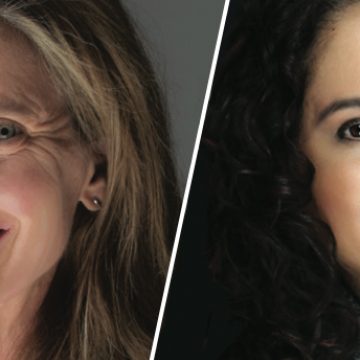When Janet Leiper ran for bencher at the Law Society of Upper Canada four years ago, she needed to get the word out. So, she placed a bulk order of chocolates, with her name printed on the wrapping of each one, and mailed them to lawyers in her network.
Now that she’s up for re-election in April, the solo defence lawyer plans to barrage her colleagues with chocolate once more. But this time, Leiper is sending two chocolates to voters — one featuring her name and another promoting Isfahan Merali, a human rights lawyer who is gunning for a seat at Convocation for the first time.
In a unique campaign, Leiper and Merali are “bencher running mates.”
In the run-up to the bencher election, they plan to do everything together — including buying joint-advertisements in the press and canvassing legal events as a duo.
The original idea was Leiper’s. It’s no secret, she explains, that the Law Society needs benchers that reflect the diversity of the profession. Right now, out of the 40 elected benchers, most are white, 60 percent are men and only two are under the age of 50.
And so, a few months ago, with that in mind, Leiper decided she wanted to team up with a new candidate — ideally someone both young and from a racialized group — thereby giving a fresh voice a better shot at winning. “I wanted to do my own small part to try to help broaden the perspectives at Convocation.”
At the time, though, she didn’t have a candidate in mind. Then, she met Merali.
Since 2009, Merali has sat on the Law Society’s Equity Advisory Group, a 10-lawyer team that benchers often turn to for advice. Last fall, Leiper met with the group in her capacity as a bencher to discuss what issues the Law Society should prioritize, and how the profession could better serve the aboriginal population. Right away, she was impressed by Merali. “She had a combination of personal warmth and thoughtfulness,” recalls Leiper. “She has this wise and quiet attitude that I could immediately imagine speaking as a force of authority around the table at Convocation.”
Over coffee a few weeks later, Leiper pitched Merali on the running-mate idea. As it turned out, Merali, who works as counsel at the Ontario Consent and Capacity Board, had considered running to be a bencher for years. A proud policy wonk, the prospect of working with benchers on committees “was very exciting.” But the electoral process seemed opaque and the odds of success slim.
With Leiper as a running mate, however, she felt inspired. “For an incumbent to run with, and support, a new candidate who happens to come from a racialized community” — Merali is South Asian — “was something new,” she says. Merali, who is 45 years old, would also be among the youngest benchers.
The moment Merali agreed to the plan, Leiper, who is 53, got to work on her running mate’s behalf. For starters, she asked several of her fellow benchers if they would support Merali. As a result, the first-time candidate has a political endorsement from five sitting benchers — Constance Backhouse, Howard Goldblatt, Malcolm Mercer, Christopher Bredt and Linda Rothstein — on her website. “It’s made a huge difference to make my name known to these benchers,” she says. “They’ve all looked at my career and said, “Yes, she’s done good work and would make a strong bencher.’”
Merali does not, however, want to merely piggy-back on Leiper’s campaign. She has reciprocated by connecting Leiper to her own networks, such as the South Asian Bar Association. And when it comes to advertising (or mailing chocolates) they have split the costs.
Aside from campaigning, both candidates have also reviewed each other’s election platform. The goal, says Leiper, is to offer a “sober second thought,” not to make sure they agree on everything. In the end, though, their positions are quite similar. For instance, both of them are sceptical that the Law Society could allow alternative business structures — or non-lawyer investment in law firms — without jeopardizing the ability of every lawyer to prioritize the interests of clients over the economic interests of their employers.
For Merali, the experience so far has been eye-opening. Suddenly, what once seemed so difficult — becoming a bencher — seems within reach. “It has really taught me how important mentoring is in our profession,” she says. “And I have to thank Janet for that.”
Read more of our 2015 Bencher Election coverage:
Joe Groia — the arch nemesis of the Law Society —
is running for bencher. Find out why



